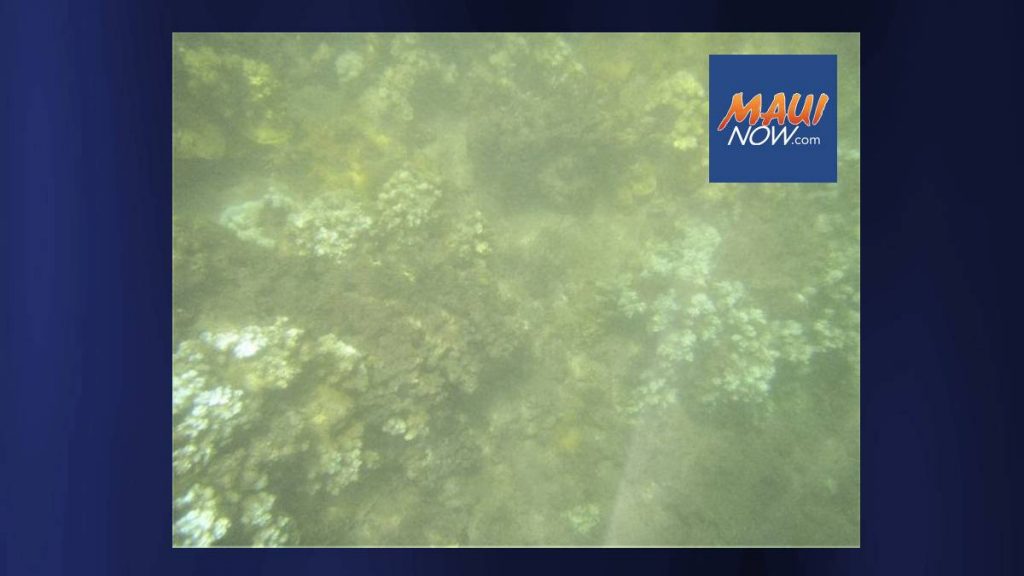Saving Māʻalaea Bay’s degraded reef; learn how at June 16 webinar

When longtime Māʻalaea resident Peter Cannon was a child in the 1970s, the coral reefs of Māʻalaea Bay were robust and healthy, similar to the condition today of the reefs at ʻĀhihi-Kīnaʻu Natural Area Reserve in southwest Maui.
Local families enjoyed harvests of ribbon limu, and native fish and opae were in abundance, Cannon recalled. But over the past decades, Māʻalaea Bay’s coral reefs degraded so severely that Hawaiʻi’s Division of Aquatic Resources described the situation as “a case study in total system collapse.”
A major contributor to the decline is poor ocean water quality, environmentalists say. A new report for the years 2019 – 2022 by the Hui O Ka Wai Ola community-based ocean water quality monitoring program shows Māʻalaea Bay has excessive levels of nitrates, second only to the levels in Kīhei Cove, of all the sites monitored along the leeward Maui coast.
Maui County residents and visitors can learn what can be done to improve the ocean water quality and save the reefs of Māʻalaea Bay during an online “Rally for the Reefs” webinar on June 16 at 5:30 p.m. via Zoom. Admission is free, but reservations are required at https://bit.ly/Rally4Reefs.
The webinar will feature presentations about wastewater treatment options by:
- Stuart Coleman, Founder and Executive Director of WAI (Wastewater Alternatives & Innovations): He will discuss modern wastewater alternatives and innovations that will make it possible to reduce the pollution that has been harming the corals in Māʻalaea Bay.
- Maui County Councilmember Kelly Takaya King: She will discuss the funding for the improved wastewater treatment system for Māʻalaea in the County’s 2023 budget and the steps ahead to make this system a reality.
- State Rep. Angus L.K. McKelvey: He will explain how the State can help establish improved wastewater treatment in Māʻalaea, and why the proposed wastewater treatment project in Māʻalaea could serve as a model for other small communities throughout Hawaii that are looking for replacements for cesspools, injection wells and septic systems.
The Division of Aquatic Resources report, “Status of Maui’s Coral Reefs,” said the coral reefs of Māʻalaea Bay that were described in 1972 as being “striking in their diversity and in the presence of rare corals species” are now overgrown by alien and invasive algae species, with fish stocks in very poor condition.
And, as late as 1993, estimated coral cover was 50 to 75% close to the site where cover is now only 8%.
“The community has been working hard to identify and address the problems that have undermined the ocean water quality of Māʻalaea Bay and harmed the coral reefs,” said Mike Fogarty, Executive Director of Maui Nui Marine Resource Council. “We’ve now reached critical junctures that will decide if and when some of the proposed solutions to the problems of water pollution and reef loss will be addressed. We need to act now to save Māʻalaea’s reefs before it’s too late.”
The Rally for the Reefs webinar is sponsored by WAI, Maui Ocean Center, Māʻalaea Village Association, Maui Nui Marine Resource Council, Maui Ocean Center Marine Institute and Sierra Club Maui Group.










